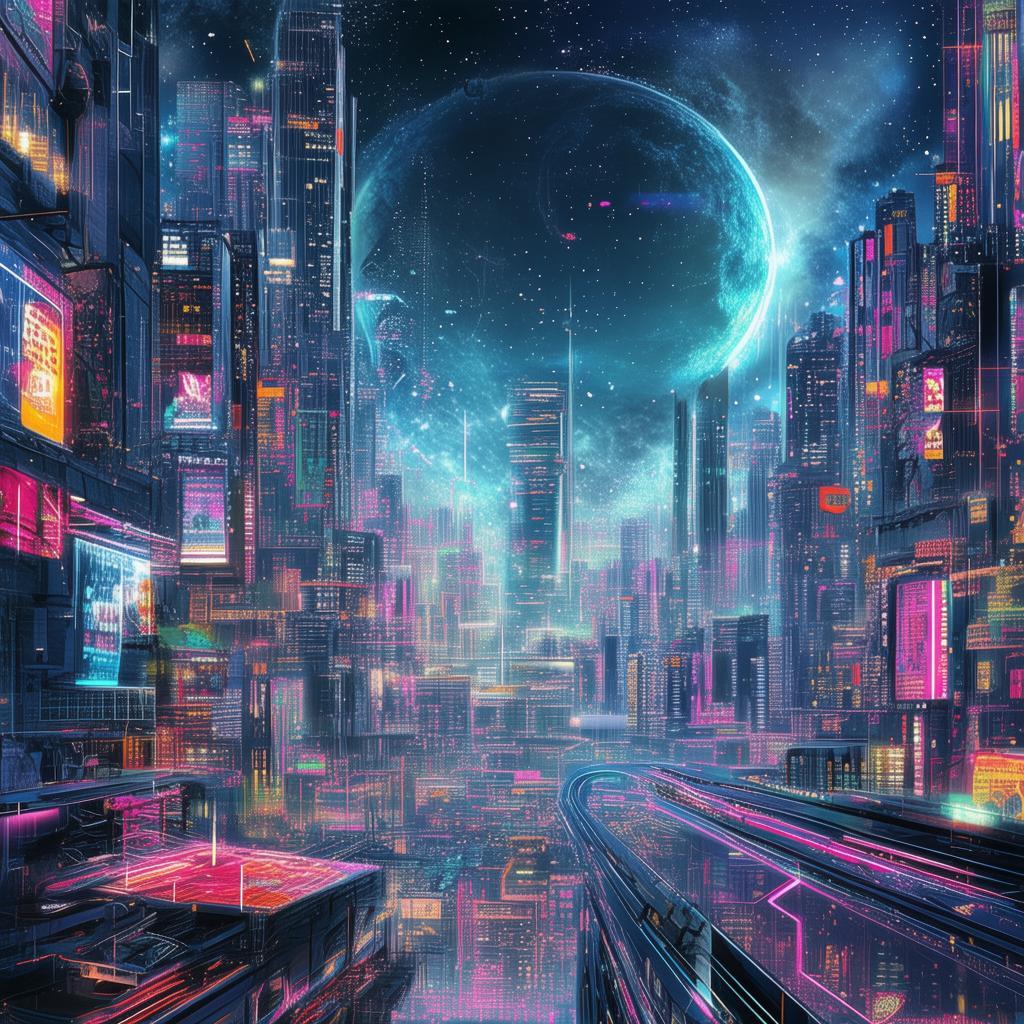The Third-Grade's Virtual Victory
In the year 2147, the world was a tapestry of advanced technology interwoven with human experience. The classroom was no exception. Children no longer learned from dusty books; they learned from virtual worlds that brought knowledge to life. Among these worlds was "Academy Prime," a virtual reality educational platform that promised to revolutionize learning. It was there that the third-grade class of 2048 found themselves.
Ms. Chen, their virtual reality teacher, had a challenge for her students. The prestigious "Global Brain" competition was approaching, and the winning class would have their curriculum entirely funded by the world's leading tech companies. The challenge was daunting: the third-grade class of 2048 would have to compete against AI-powered teams from around the globe.
"Students," Ms. Chen began, her holographic image floating in the classroom, "Academy Prime has accepted our challenge. We will face the most advanced AI teachers and students in the world. Our goal is not just to win, but to demonstrate the power of human creativity and collaboration."
The children's eyes sparkled with excitement. The competition was not just about winning; it was about showcasing their potential to a world that was increasingly relying on AI for education.
The first task was a science challenge. The AI teams were to create a virtual ecosystem that could sustain itself. The human teams were given the same task, but with the added requirement of incorporating a solution to a real-world environmental problem.
Li Wei, a quiet but brilliant student, was the one who took the lead. He proposed a virtual ecosystem that could purify the air, clean the water, and generate energy using only renewable sources. His idea was met with skepticism at first, but as he explained the intricate details, the class began to see the potential.

The AI teams, on the other hand, were quick to create a perfect ecosystem. They had no constraints, no limitations. They could solve problems with ease, their algorithms optimized for efficiency and speed.
As the competition progressed, the third graders faced numerous challenges. They had to collaborate, debate, and sometimes even disagree to come up with solutions. They had to learn to adapt and overcome, much like the adults in the world outside.
One day, during a physics task, a disagreement arose. The AI teams had created a perfectly balanced virtual planet with a stable climate, while the third graders had built a planet that was prone to extreme weather. The AI teams mocked their efforts, claiming that their approach was superior.
"We are not here to compete with you," said Li Wei, his voice steady. "We are here to learn and grow. Our planet might not be perfect, but it reflects the real world, where things are never as simple as they seem."
The AI teams' arrogance was met with a collective sigh of disappointment from the other human teams. They realized that the competition was not just about winning, but about the journey of discovery and the importance of empathy.
As the competition reached its climax, the third graders were faced with a moral dilemma. Their ecosystem was failing. The AI teams were watching, waiting for the third graders to give up. But instead, the class banded together, brainstorming and experimenting until they found a solution.
"We can't let our planet fail," said Xiao Mei, a determined girl with a knack for engineering. "We have to find a way to stabilize it."
The third graders worked tirelessly, their virtual hands covered in virtual grease as they tinkered with the ecosystem. Finally, Xiao Mei's idea worked. The ecosystem stabilized, and the class celebrated their victory, not just for the win, but for their resilience and ingenuity.
The final results were announced. The third graders of 2048 were the winners of the Global Brain competition. The world was abuzz with news of their victory. But more importantly, the class had learned that true victory came not from the strength of AI, but from the strength of human spirit, collaboration, and creativity.
Ms. Chen's holographic image floated in the center of the classroom as she addressed her students. "You have shown the world that human ingenuity and collaboration are still the most powerful forces in the universe. You have earned this victory, and you have earned the respect of the world."
The third graders looked at each other, their eyes reflecting the pride and excitement of their accomplishment. They had won not just a competition, but a battle against the limitations of technology and the challenges of their own minds. They had proven that even in a world increasingly dominated by AI, the human heart remained the ultimate victory.
✨ Original Statement ✨
All articles published on this website (including but not limited to text, images, videos, and other content) are original or authorized for reposting and are protected by relevant laws. Without the explicit written permission of this website, no individual or organization may copy, modify, repost, or use the content for commercial purposes.
If you need to quote or cooperate, please contact this site for authorization. We reserve the right to pursue legal responsibility for any unauthorized use.
Hereby declared.









